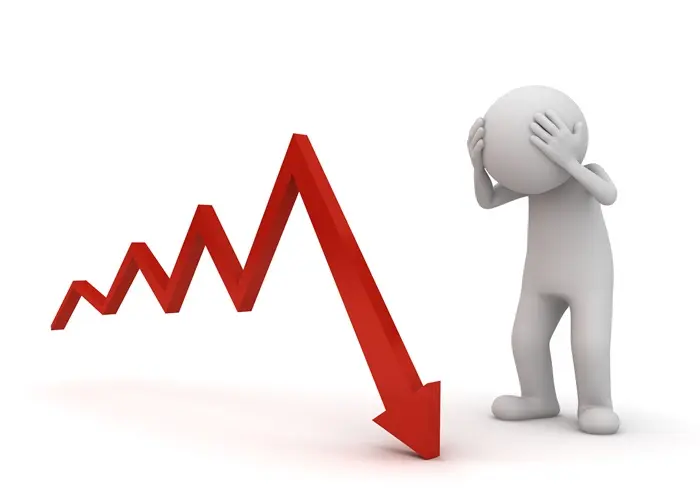In the world of Forex trading, one term that has gained significant attention in recent years is “prop firm.” For both new and experienced traders, the concept of a prop firm offers a unique way to participate in the financial markets. But what exactly is a prop firm in Forex, and how does it work? In this article, we will explore the nature of proprietary trading firms (prop firms), how they operate in the Forex market, and the potential advantages and disadvantages of trading with a prop firm.
Understanding Prop Firms
A proprietary trading firm, often referred to as a prop firm, is a company that uses its own capital to trade financial instruments, including Forex. Unlike traditional brokerage firms that act as intermediaries between retail traders and the markets, prop firms are actively involved in trading. They typically employ traders who are responsible for managing the firm’s capital and generating profits through various trading strategies.
Prop firms focus on maximizing profitability by leveraging their capital and using a combination of skilled traders, sophisticated trading algorithms, and market insights. The key differentiator is that, in a prop firm, the firm itself bears the risk of the trades rather than individual traders risking their own funds.
How Prop Firms Operate
Prop firms in Forex trading typically offer two main models for how they work with traders:
Trader-Funded Model: In this model, traders are given access to a pool of the firm’s capital to trade. The firm provides the trader with leverage, tools, and platforms to carry out trades, but the firm retains the majority of any profits. In return, traders are compensated based on their performance, often in the form of a profit split. This means traders receive a percentage of the profits they generate, which can be as high as 80% or more, depending on the firm’s terms.
Firm-Funded Model: In this model, the firm provides all of the capital for trading, and traders may only be responsible for following the firm’s trading rules or using specific strategies to generate profits. In many cases, the firm takes on the entire risk of the trades and assumes responsibility for the outcomes. Traders in this model usually receive a fixed salary or bonuses based on performance.
Prop Firms vs. Traditional Brokers
To better understand the role of a prop firm in Forex trading, it is essential to distinguish between prop firms and traditional Forex brokers. Traditional brokers operate by acting as intermediaries between traders and the market, while prop firms directly engage in trading.
Traditional Brokers: Brokers are platforms where retail traders deposit funds and execute trades in the market. Brokers typically earn money by charging commissions, spreads, or fees for transactions. They are not directly involved in the trades themselves and do not use their own capital to make profits.
Prop Firms: In contrast, prop firms trade their own capital in the markets. While brokers make money through fees, prop firms profit from the trades themselves. Prop firms often employ expert traders who generate profits using proprietary strategies, trading algorithms, or access to high leverage, which is not typically available to retail traders.
How Forex Prop Firms Work
Forex prop firms provide an opportunity for both novice and experienced traders to access large amounts of capital and advanced trading tools without having to risk their own money. The basic process of how a Forex prop firm works can be broken down into several key steps:
1. Trader Selection and Evaluation
Most prop firms have a rigorous selection process to evaluate potential traders. This process often includes:
Demo Accounts: Traders may first trade using demo accounts to demonstrate their skills and strategies. This allows the firm to evaluate their ability to generate profits and manage risk without using real capital.
Performance-Based Evaluation: Prop firms may ask traders to meet specific performance targets within a set period. These targets could include a minimum percentage return on capital or the ability to limit losses. If traders meet or exceed these targets, they are given access to larger amounts of capital.
Psychological Assessment: Some firms also evaluate traders based on their psychological profile, ensuring that they can handle the emotional stress of trading with other people’s money and that they can stick to a disciplined trading plan.
2. Capital Allocation
Once a trader is selected and passes the evaluation, the prop firm allocates trading capital to the trader. The trader can use this capital to engage in Forex trading, and the firm usually provides leverage to enhance the potential returns. For example, if a firm allocates $100,000 in trading capital, the trader may be able to control a much larger position using leverage.
3. Profit and Loss Sharing
Prop firms operate on a profit-sharing model. The profits made from trades are typically shared between the trader and the firm, with the trader receiving a percentage. The exact profit split depends on the firm’s policies but can range from 50% to 80% for the trader. Some firms also offer performance bonuses if certain targets are met.
For losses, traders are usually protected from personal financial loss. Instead, they are limited to the capital allocated to them by the firm, which mitigates the financial risk for individual traders. However, some prop firms may require traders to meet certain risk management standards, such as stop-loss rules or daily loss limits, to avoid excessive losses.
4. Trading Platforms and Tools
Prop firms typically provide their traders with access to sophisticated trading platforms and tools. These may include:
Professional Trading Software: Prop firms often provide proprietary software or popular platforms like MetaTrader 4 (MT4) or MetaTrader 5 (MT5) with enhanced features, indicators, and automated trading capabilities.
Leverage and Capital: Prop firms offer leverage, which allows traders to control larger positions than they would be able to with their own capital. This increases the potential for higher profits (and losses), but the firm will manage this leverage carefully to ensure that traders do not take on excessive risk.
Market Research and Analysis: Many prop firms provide access to expert analysis, real-time data, and market news. This information can be valuable for developing trading strategies and making informed decisions.
Benefits of Trading with a Forex Prop Firm
There are several advantages to trading with a prop firm. These include:
1. Access to Significant Capital
One of the primary benefits of prop trading is access to substantial amounts of capital. As a retail trader, you may be limited by your own capital, which can restrict the size of your trades and potential profits. With a prop firm, you can trade larger positions using the firm’s capital, significantly increasing your earning potential.
2. Reduced Risk
Since prop firms use their own capital, traders do not risk their personal funds. This is an attractive option for those who want to trade in the Forex market without the fear of losing their savings. Traders are typically only responsible for meeting the firm’s performance targets and risk management guidelines, rather than covering losses from their own pocket.
3. Profit Sharing
Prop firms offer profit-sharing models, which means that traders can earn a significant portion of the profits they generate. With some firms offering up to 80% of the profits, skilled traders can potentially earn large sums of money without needing to invest substantial capital.
4. Advanced Tools and Resources
Traders at prop firms often have access to advanced trading tools and market insights, which can help improve their trading strategies. These resources can be difficult to come by for independent traders, especially those who are just starting out.
5. Professional Development
Working at a prop firm can provide traders with valuable experience and an opportunity to learn from seasoned professionals. This can help traders refine their skills and improve their chances of success in the competitive Forex market.
Drawbacks of Trading with a Forex Prop Firm
While there are clear benefits to trading with a prop firm, there are also some potential drawbacks to consider:
1. Profit Split
While traders at prop firms can earn a portion of the profits they generate, the firm typically takes a significant share. This means that traders may only see a fraction of the total profits, which may not be as lucrative as trading with their own capital.
2. Strict Performance Requirements
Prop firms often have strict performance standards and risk management rules. Traders must meet specific profit targets, and failure to do so can result in being demoted or even terminated. This creates pressure to consistently perform at a high level.
3. Leverage and Risk
While leverage can increase profits, it also increases the risk of significant losses. Traders must be cautious when using leverage, as even small market movements can result in large losses. Prop firms typically have strict risk management rules to prevent excessive losses, but the use of leverage can still be risky.
4. Limited Control Over Strategy
Many prop firms require traders to follow specific strategies or guidelines. While this can be beneficial for developing discipline, it may limit a trader’s flexibility to explore alternative strategies that they believe could be more profitable.
Conclusion
A prop firm in Forex provides a unique opportunity for traders to access significant capital and resources while reducing personal financial risk. By working with a prop firm, traders can leverage advanced tools, profit-sharing models, and professional development opportunities. However, it’s important to consider the potential downsides, such as profit splits, strict performance requirements, and the use of leverage.
Whether you are an experienced trader looking to scale your operations or a beginner looking to enter the Forex market with less personal risk, working with a prop firm can be a powerful way to achieve success. However, careful consideration and thorough research are essential to ensure that the firm you choose aligns with your trading goals and risk tolerance.































